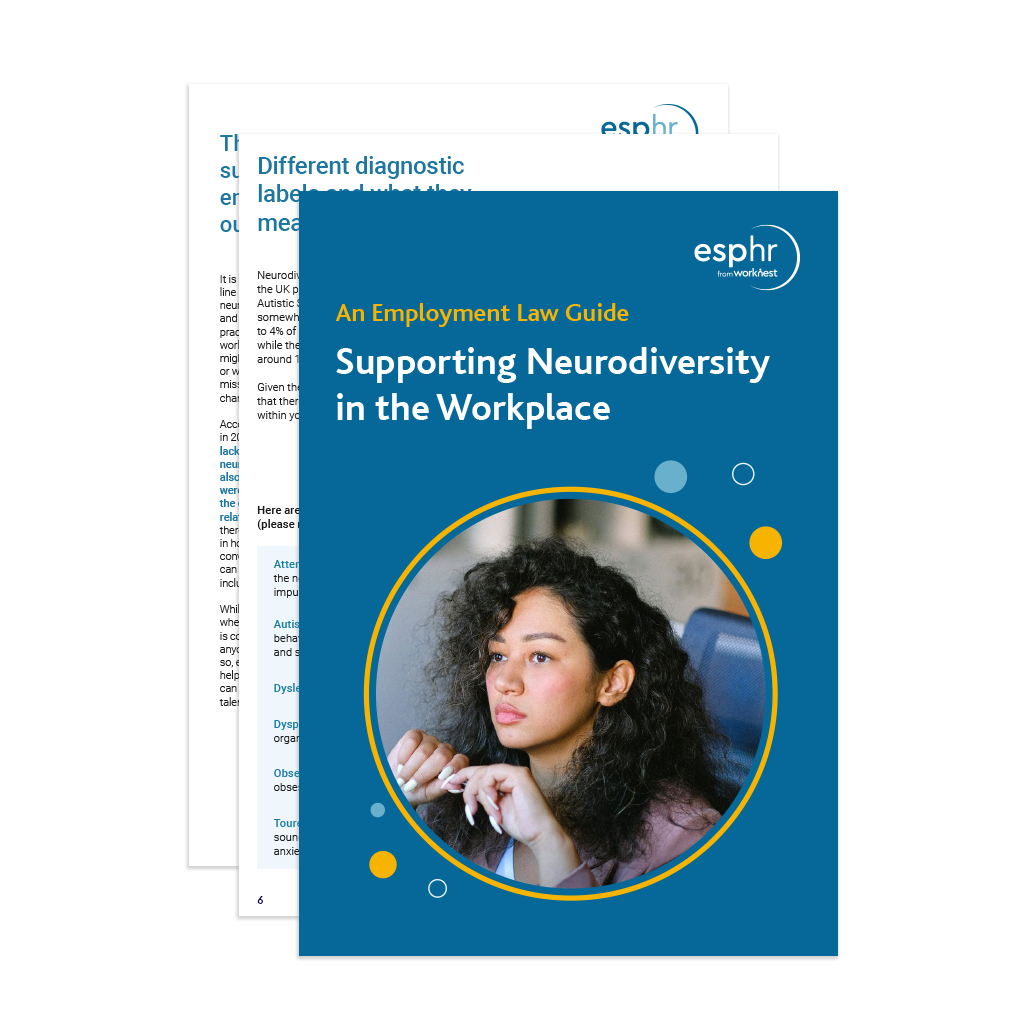Due to a significant increase in autism diagnoses over the past two decades, neurodiversity awareness in the UK has surged. Studies suggest that one in 36 people could be on the autism spectrum, leading to a record high number of individuals seeking help and support.
This heightened awareness extends to the workplace, where more people are recognising their own neurodivergent traits and understanding how they impact job performance.
Autism in Focus: Challenges and Characteristics
Autism, described by the National Autistic Society as “a lifelong developmental disability which affects how people communicate and interact with the world”, presents unique challenges for those on the spectrum. Autistic people may struggle to communicate with others, understand thoughts and feelings, and may find certain stimuli overwhelming or stressful. They might also take longer to process information and engage in repetitive behaviours.
As an employer and HR professional, it’s important to acknowledge that there may be autistic employees within the workforce, whether the condition has been disclosed or not.
Legal Obligations and Reasonable Adjustments
If an employee informs their employer of their autism diagnosis, or the employer is otherwise aware that an employee is autistic, the employer will be under a legal duty to make reasonable adjustments to accommodate their needs. Additionally, given the difficulties in obtaining a diagnosis, some employees might suspect they are autistic without formal confirmation, and it would be wise for employers to consider reasonable adjustments in such cases. Adjustments are not just necessary during the course of employment but also apply to the recruitment stage, such as adapting the interview process.
Implementing Reasonable Adjustments for Autistic Employees
The National Autistic Society (NAS) provides some valuable guidance on employing autistic individuals, which is available here.
Examples include:
- implementing fixed shifts and routines
- reducing stimuli in the workplace
- providing clear and concise instructions
- offering reassurance during stressful situations
- raising awareness among staff.
Recognising Individuality: Customising Support
It’s important to remember that each autistic person has their own strengths and weaknesses, so adjustments that work for one individual may not be suitable or helpful for another.
There are many other neurodivergent conditions which may also warrant reasonable adjustments in the workplace. By taking proactive steps, adapting processes, and seeking advice from specialists, employers can create a more inclusive and supportive work environment for all neurodiverse employees.





